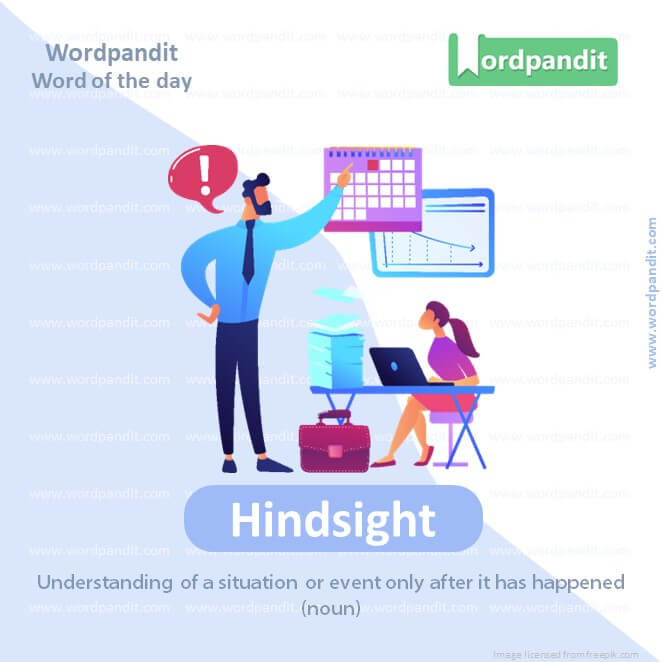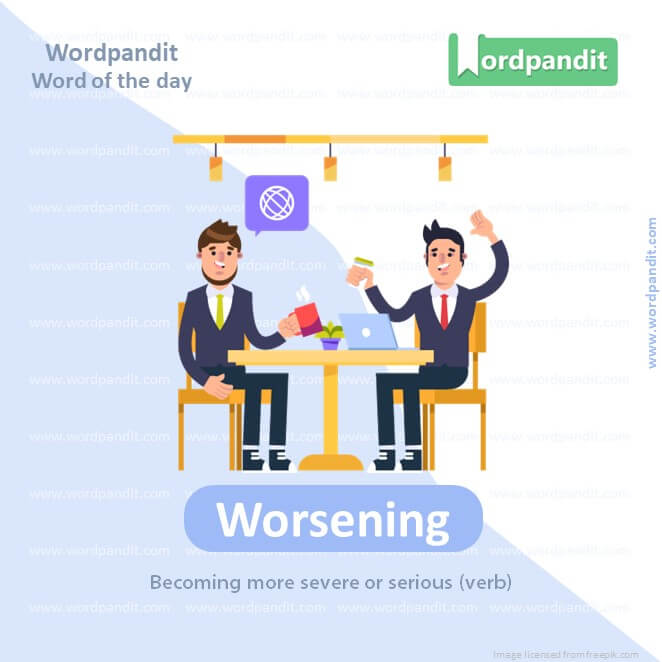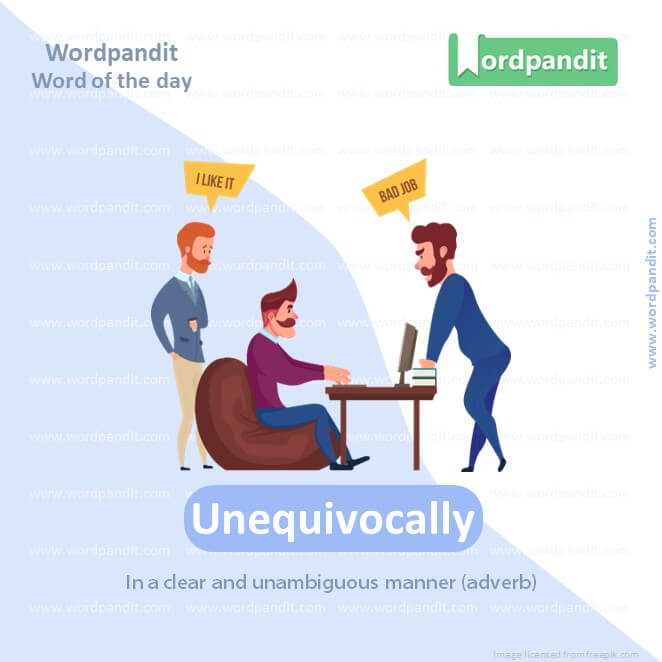Daily Vocabulary Words: List of Daily Used Words in Leading International Newspapers
Hi there. Welcome to this special section @ Wordpandit.
Our endeavour here is very simple: to highlight important daily vocabulary words, which you would come across in leading newspapers in the country. We have included the following newspapers in our selection:
• The New York Times
• The Washington Post
• Scientific American
• BBC
• The Guardian
• Psychology Today
• Wall Street Journal
• The Economist
We are putting in extensive work for developing your vocabulary. All you have got to do is be regular with this section and check out this post on a daily basis. This is your repository of words that are commonly used and essentially, we are posting a list of daily used words. Hence, this has significant practical application as it teaches you words that are used commonly in leading publications mentioned above.
Visit the website daily to learn words from leading international newspapers.

WORD-1: Hindsight
CONTEXT: It did not cross my mind that somebody would interpret it as making an enemies list or something,” he said. “It should have, in hindsight.
SOURCE: The guardian
EXPLANATORY PARAGRAPH: Imagine you watched a movie yesterday and today; you remember a scene that now makes so much sense! Hindsight is like looking back at something that happened and understanding it better. It’s like saying, “Oh! Now I get it!” after the event has already happened.
MEANING: Understanding of a situation or event only after it has happened. (noun)
PRONUNCIATION: Highndsight
SYNONYMS: Retropection, Reflection, Looking back, Rearview, Retrospection, Review, Afterthought
USAGE EXAMPLES:
a. In hindsight, I should have brought an umbrella.
b. She realized in hindsight that she forgot her keys.

WORD-2: Dutifully
CONTEXT: Purity test or no, 126 of his House colleagues fell dutifully in line.
SOURCE: Al Jazeera
EXPLANATORY PARAGRAPH: Imagine you have a little plant and you water it every day because you know it’s your job. Doing something “dutifully” means doing it because it’s your duty or responsibility, like watering that plant!
MEANING: In a responsible or obedient manner. (adverb)
PRONUNCIATION: Dooteefully
SYNONYMS: Obediently, Loyally, Responsibly, Conscientiously, Faithfully, Reliably, Devotedly
USAGE EXAMPLES:
a. He dutifully completed his homework every evening.
b. Sarah dutifully attended her sister’s recital.
c. The soldier stood dutifully at his post.
d. She dutifully visited her grandmother every Sunday.

WORD-3: Seditious
CONTEXT: seditious abuse of the judicial process,” as he told the justices. Rather, listen to Texas Republican Rep.
SOURCE: Al Jazeera
EXPLANATORY PARAGRAPH: Imagine if someone whispered to you to not listen to your teacher, just because they wanted to cause trouble. “Seditious” means encouraging people to go against or rebel against those in charge.
MEANING: Promoting rebellion against authority. (adjective)
PRONUNCIATION: Sehdishus
SYNONYMS: Rebellious, Subversive, Treasonous, Insurgent, Revolutionary, Mutinous, Insurrectionary
USAGE EXAMPLES:
a. The seditious speech got the speaker arrested.
b. Some viewed the art as a seditious act.
c. The leader warned against seditious activities.
d. The magazine was banned for its seditious content.

WORD-4: Worsening
CONTEXT: Yet as the world lurches towards a worsening conflagration in Gaza, the fourth estate has, in Talleyrand’s old phrase, learned nothing and forgotten nothing.
SOURCE: Washington Post
EXPLANATORY PARAGRAPH: You know when a small hole in a sock gets bigger over time? “Worsening” is when something gets worse or not as good as it was before.
MEANING: Becoming more severe or serious. (verb)
PRONUNCIATION: Wursening
SYNONYMS: Deteriorating, Declining, Slumping, Decaying, Degenerating, Aggravating, Intensifying
USAGE EXAMPLES:
a. The weather is worsening and we might need to stay indoors.
b. The patient’s condition is worsening.
c. Pollution is worsening in our city.
d. The traffic situation seems to be worsening every day.

WORD-5: Unequivocally
CONTEXT: unequivocally the horrifying and unprecedented acts of terror by Hamas
SOURCE: Washington Post
EXPLANATORY PARAGRAPH: Imagine saying “YES!” very loudly and clearly when asked if you want ice cream. When you say something “unequivocally”, it means you’re saying it very clearly and there’s no doubt about it.
MEANING: In a clear and unambiguous manner. (adverb)
PRONUNCIATION: Unekwivoklee
SYNONYMS: Clearly, Definitely, Decidedly, Undoubtedly, Unmistakably, Indisputably, Unambiguously
USAGE EXAMPLES:
a. She unequivocally denied the accusations.
b. I can unequivocally say that this is the best cake I’ve ever eaten.
c. The evidence unequivocally points to the culprit.
d. He unequivocally supported the new policy.
WORD-6: Pulverising
CONTEXT: the right noun for conflict between one of the most militarised states on Earth – Israel has 10 times more tanks than the British army – and Gaza, which has no planes, no Iron Dome (all-weather air defence system), barely any money. It is a daily pulverising.
SOURCE: Washington Post
EXPLANATORY PARAGRAPH: Think of a big rock being smashed into tiny pieces of sand. “Pulverising” is when you break or crush something into very, very small pieces.
MEANING: Crushing or grinding something into tiny particles or powder. (verb)
PRONUNCIATION: Pulverizing
SYNONYMS: Crushing, Grinding, Milling, Smashing, Shattering, Beating, Mashing
USAGE EXAMPLES:
a. The machine is pulverising the rocks into gravel.
b. She started pulverising the spices for the dish.
c. The old building was pulverised to make way for a new one.
d. The blender is pulverising the fruit into a smoothie.
WORD-7: Overwhelming
CONTEXT: an overwhelming majority that neither of the two main parties cares to represent.
SOURCE: The guardian
EXPLANATORY PARAGRAPH: Imagine walking into a room filled with hundreds of balloons. It’s so much that it surprises you and takes over your feelings. “Overwhelming” is when something is so much or so strong that it’s hard to handle.
MEANING: Very intense or powerful, often to an excessive degree. (adjective)
PRONUNCIATION: Overwelming
SYNONYMS: Intense, Powerful, Immense, Strong, Profound, Staggering, Formidable
USAGE EXAMPLES:
a. The support from the community was overwhelming.
b. He felt an overwhelming sense of joy.
c. The task ahead was overwhelming for her.
d. There was an overwhelming number of choices on the menu.
WORD-8: Acquiesced
CONTEXT: councillors who had acquiesced in their leader’s views and advising local people not to vote for them anymore.
SOURCE: Washington Post
EXPLANATORY PARAGRAPH: Imagine if your friend asks to play with your toy, and even though you want to play with it too, you let them. “Acquiesced” means agreeing or accepting something without protest, like sharing your toy.
MEANING: Agreed or accepted without protest or resistance. (verb)
PRONUNCIATION: Akweeest
SYNONYMS: Agreed, Complied, Conceded, Assented, Relented, Yielded, Submitted
USAGE EXAMPLES:
a. She acquiesced to her parents’ wishes and studied medicine.
b. After much debate, he finally acquiesced.
c. The manager acquiesced to the customer’s request.
d. They acquiesced to the new regulations.
WORD-9: Bereaved
CONTEXT: Some payments were made last year to survivors and bereaved partners.
SOURCE: The guardian
EXPLANATORY PARAGRAPH: Imagine feeling very, very sad because you lost something or someone you loved, like a pet or a family member. Someone who feels this kind of deep sadness because they lost someone is called “bereaved”.
MEANING: Deeply saddened due to the death of a loved one. (adjective)
PRONUNCIATION: Bereeved
SYNONYMS: Mourning, Grieving, Sorrowful, Heartbroken, Lamenting, Desolate, Distressed
USAGE EXAMPLES:
a. The bereaved family held a memorial service.
b. Support groups can help the bereaved cope with their loss.
c. She offered her condolences to the bereaved parents.
d. The community rallied around the bereaved widow.
WORD-10: Negligent
CONTEXT: Greater Manchester police must be negligent for failing to hand over clear evidence of his innocence.
SOURCE: Al Jazeera
EXPLANATORY PARAGRAPH: Imagine if you had a toy and didn’t take care of it, and then it broke. If you don’t take care of things or people the way you should, it’s like being “negligent”. It means not being careful or attentive.
MEANING: Failing to take proper care or showing lack of attention to someone or something. (adjective)
PRONUNCIATION: Negligent
SYNONYMS: Careless, Lax, Inattentive, Remiss, Slack, Heedless, Thoughtless
USAGE EXAMPLES:
a. The teacher was negligent in supervising the students.
b. The factory was fined for negligent safety standards.
c. He was found negligent in his duties.
d. Negligent behavior can lead to accidents.
Vocabulary Meaning
In the ocean of language learning, ‘vocabulary meaning’ is akin to the colorful coral reefs that add depth and vibrancy to communication. Yet, infusing our interactions with this vibrancy is often a challenge for many language learners. The crux lies in effectively deciphering and employing the ‘vocabulary meaning’.
Learning ‘vocabulary meaning’ isn’t about merely gluing words to their definitions. It’s about forming a deep understanding and connection with these words that transcends rote learning. To gain a comprehensive grasp of ‘vocabulary meaning’, one needs to navigate beyond textbook definitions and commit to exploiting diversified resources such as novels, films, music, articles, and digital content. This allows one to encounter vocabulary in a variety of contexts and actual usage, giving deeper insight into their meaning.
However, understanding ‘vocabulary meaning’ involves another essential aspect—memory retention. Techniques such as spaced repetition and the Leitner System offer effective methodologies to maintain and consolidate the ‘vocabulary meaning’. Additionally, leveraging mnemonic strategies can help etch words into your memory by linking them with unique stories or imagery that are personal and easily recallable.
Another way of mastering ‘vocabulary meaning’ is by immersing yourself in the language. Engage in regular conversations with native speakers if possible or utilize language exchange platforms to practice your skills. This not only bolsters your understanding of how the vocabulary is used but also helps articulate the ‘vocabulary meaning’ in the societal and cultural contexts.
In conclusion, gaining a robust grasp of ‘vocabulary meaning’ is a journey rather than an end goal. It requires dedication, perseverance and most importantly, a multi-faceted approach that includes diversified resources, effective memory strategies, and real-life application. With these strategies in place, the depths of ‘vocabulary meaning’ are no longer daunting but become an enchanting exploration of language.









